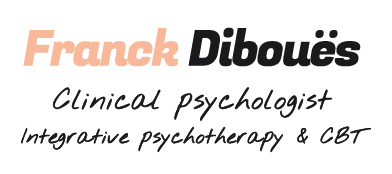Trauma therapist in Singapore
Trauma or Post-Traumatic Stress Disorder (PTSD) is a specific psychological reaction which happens after someone is exposed to;
- Actual or threatened death, serious injury, or sexual violence. Some specific diagnostic criteria exist like having directly experienced the traumatic (violent) event or having witnessed it. Other precise diagnostic aspects exist.
As a result, the person will feel, after the event or a certain time (which can sometimes be, very long like several years) these clinical signs;
- Intrusions
- Avoidance
- Negative alterations in cognition and mood
- Alterations in arousal and reactivity
Intrusions: Intrusions are unwanted memories (nightmares for example) that replay the triggering event.
Intrusions can take the form of flashbacks, which can be triggered by sights, sounds, smells, or other stimulation.
For example, some smell (the attacker’s body odor for example) or some noise (explosion or sudden loud sound like slamming doors for example) might trigger the memory of an assault/accident, leading the person to throw himself to the ground in a panic.
Avoidance: People with PTSD might avoid things which subjectively remind them of the traumatic event (in some places in relation with the triggering event).
Negative alterations in cognition and mood: Cognitive and mood changes like disinterest and detachment, cognitive distortions, anhedonia, guiltiness, depression…
Alterations in arousal and reactivity: People with PTSD can demonstrate excessive arousal, irritability, and reactivity, or they may seem numb and distant.
They can also experience depersonalization which is characterized by feeling detached from one’s self or body and/or derealization which means experiencing the world as unreal or dreamlike.
PTSD is often overlooked. Because the patient can focus on other aspects of his issues like depression, anxiety, the clinician can miss the diagnostic.
Also, because patients avoid some aspect of the trauma, he will prefer not to mention these aspects during the session or the clinical interview.
Old repetitive traumas, especially the childhood trauma often led to what we call “complex trauma.”
“The risk of developing PTSD is subject to a dose-response effect: The more frequent and severe the traumatic stress, the more likely it is that PTSD symptoms will develop [Kolassa et al., 2010].
At the same time, a greater number and type of traumatic experiences (especially interpersonal ones) seem to lead to more complex symptoms [Briere et al., 2008] and to more comorbidities, which have a negative impact on the course of the disease and the clinical outcome [Nanni et al., 2012; Goddard et al., 2015].
In addition to the core symptoms of PTSD, complex trauma shows other serious symptom clusters.
Therefore, despite treatment, victims of complex trauma often exhibit chronic symptoms, termination of therapy, or even resistance to therapy [Cloitre et al., 2010; Dorrepaal et al., 2014]. »
Verhaltenstherapie (2022) 32 (Suppl. 1): 220–229.
I can help you to overcome your trauma in Singapore
Franck Dibouës is the Clinical Psychologist you will meet.
The Psychologist is the expert of psychology, the Clinical psychologist is one of the experts of mental health.
I’m a Clinical Psychologist graduated in France (Master 2 Bologna process) in 2003.
I worked with patients with trauma for years in a Forensic Medical Emergency Department in the suburbs of Paris and in some associations for the Support of Victims of Criminal offense in Paris and its suburbs.
In 2009, I was trained in Paris in Cognitive and Behavioral Therapy for continuing education.
After that, I was also trained to EMDR at EMDR France.
EMDR is a CBT therapy which is recognized by WHO like the most effective psychotherapy for trauma.
Franck will provide you the treatments recommended by the best experts in the Trauma field.

Steps of the trauma therapy
The first step, Franck will propose you some assessment tools and will eventually make a diagnostic (if useful and relevant).
The assessment tool can be the Impact of Event Scale – Revised (IES-R) or the Posttraumatic Stress Disorder Checklist for DSM-5 (PCL-5).
According to the results of the assessments and the diagnostic, some specific help will be provided like EMDR therapy.
The question of the biological treatment is important and should not be taboo.
Psychotropic drugs are like the other drugs, it’s useful when it’s well prescribed to the right person at the right time.
Because PTSD may be debilitating, it can be useful, in some specific situations to prescribe a biological treatment (often anti-depressant, anxiolytic or hypnotic).
If your Clinical Psychologist thinks you are in this situation, he will refer you to a Medical Doctor (your GP or a psychiatrist) to complete the psychotherapy with the best treatment for you.
All studies show that in some specific situation, drug or psychotherapy only are not enough and has to be used together to potentialized each other.
At the end of the consultation
What can we expect from psychotherapy for trauma like EMDR?
- To identify the PTSD, if any, it’s needed to assess it by clinical interviews and some diagnostic assessment tools.
- To feel relief to talk about this difficult situation to a professional who will understand your situation. Patients with PTSD often feel shame, despair and isolation due to their PTSD symptoms.
- Understanding the disorder which is fundamental to gain some control on it.
- Gradually, to reduce the intrusive symptoms of the PTSD like the nightmares.
- Gradually to overcome the limitation induced by the PTSD like the avoidance.
- Gradually to improve cognitive functions and mood, to overcome the depression if there is.
- Gradually to reduce the hyperarousal of the nervous system (anxiety, overwatching, startle reactivity...).
Where to consult us for depression in Singapore ?
The clinic is located in Central Business District, 150 Cecil Street.
For convenience, the session can also be made remotely.
Some studies showed that psychotherapy is as efficient online as in face to face.


Consultation fee
- 45 min to 1h consultation
- Personnalized solutions
250 SGD
You will receive an invoice to claim your health insurance.
To make an appointment
You can contact me by WhatsApp, we will set an appointment:
Or you can contact me via the form below:
